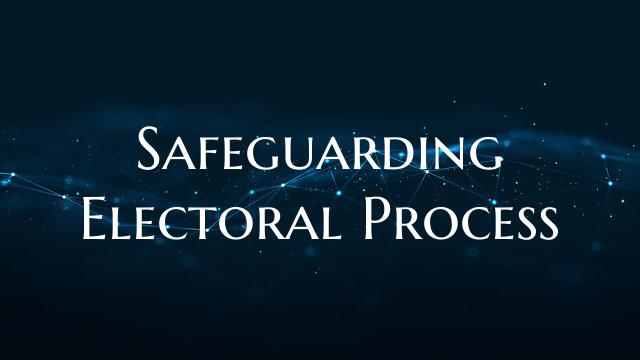Safeguarding Electoral Process
Ensuring the integrity and safeguarding of the electoral process is crucial for upholding democracy and maintaining public trust in the political system. By implementing robust measures and best practices, election stakeholders can protect the sanctity of the electoral process and uphold the principles of free and fair elections. Here are some key strategies to safeguard the electoral process:
1. Voter Education: Educating voters about their rights, the voting process, and how to detect and report any irregularities or instances of potential fraud is essential. By promoting voter awareness and engagement, individuals can actively contribute to safeguarding the electoral process.
2. Transparent Electoral Systems: Implementing transparent electoral systems that allow for scrutiny and verification of the entire electoral process can help prevent fraudulent activities. This includes transparent voter registration processes, secure ballot handling procedures, and open observation of voting and counting processes.
3. Strong Legal Framework: A robust legal framework that clearly defines electoral laws, procedures, and guidelines is essential for ensuring accountability and transparency in the electoral process. Laws should address issues such as campaign financing, misconduct, and penalties for electoral fraud.
4. Independent Electoral Commissions: Independent electoral commissions play a crucial role in safeguarding the electoral process by overseeing elections, enforcing electoral laws, and ensuring a level playing field for all candidates. These commissions should be free from political interference and demonstrate impartiality and professionalism.
5. Secure Technology: Embracing secure and reliable technology can enhance the efficiency and transparency of the electoral process. This includes using electronic voting machines, voter registration databases, and results transmission systems that are secure from hacking and tampering.
6. International Observers: Inviting international election observers to monitor the electoral process can help increase credibility and transparency. International observers provide an impartial assessment of the conduct of elections and help identify areas for improvement in future electoral processes.
7. Post-Election Audits: Conducting post-election audits to verify the accuracy of electoral results can help identify and rectify any discrepancies or irregularities. These audits provide an additional layer of transparency and accountability to the electoral process.
By implementing these strategies and best practices, election stakeholders can work together to safeguard the electoral process, uphold democracy, and ensure that elections are free, fair, and transparent. Ultimately, safeguarding the electoral process is essential for fostering trust in the political system and preserving the integrity of democratic governance.

